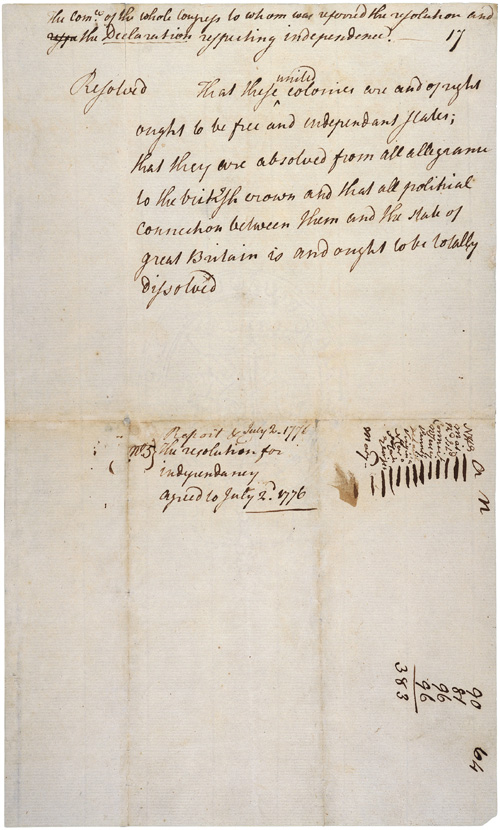Lee, Richard Henry (1732 or 1733-1794), was a Virginia signer of the Declaration of Independence. In 1758, he was elected to the Virginia legislature, where he served until the outbreak of the American Revolution in 1775. During this time, he became especially active in Virginia’s campaign of resistance to Great Britain’s Stamp Act and Townshend Acts, both of which raised the taxes of American colonists.
In 1774, Virginia sent Lee as a delegate to the First Continental Congress in Philadelphia. At first, he favored a policy of economic pressure on the British government. But, by late 1775, he began to support American independence. On June 7, 1776, Lee introduced a resolution that “these United Colonies are, and of right ought to be, free and independent States … and that all political connection between them and the State of Great Britain is, and ought to be, totally dissolved.” The adoption of this resolution by the Congress on July 2 was the signal for American independence.

Lee was elected president of the Congress in 1784. He was chosen to attend the Constitutional Convention in 1787 but did not go. He then helped lead the opposition to the United States Constitution but served as a U.S. senator from Virginia after it was adopted. As a senator, Lee helped lead the successful effort to add the 10 amendments called the Bill of Rights to the Constitution in 1791. Lee was born on January 20 in 1732 or 1733, in Stratford Hall, near Montross, Virginia, and was educated in England. He died on June 19, 1794.
